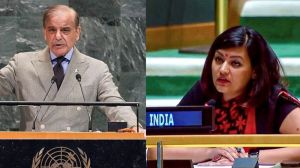Cut subsidies on fuel: Kelkar panel
Economy: Do nothing govt approach can push fiscal deficit to 6.1% in 2012-13
PAINTING a grim picture of government finances,a high-level panel tasked to chart a roadmap for fiscal consolidation has recommended that the Centre eliminate subsidies on diesel and cooking gas over the next two years,raise prices of kerosene and urea regularly and switch to direct transfer of cash subsidies for the poor.
The committee headed by former finance secretary Vijay Kelkar has also suggested that the government needs to improve tax mobilisation,cut plan expenditure and focus on disinvestment of state-run firms. The governments do nothing approach,it has warned,could push the fiscal deficit to as high as 6.1 per cent in 2012-13.
Adherence to measures listed by the panel could,however,help keep the deficit at about 5.2 per cent of the GDP. A high fiscal deficit also leaves little space for monetary policy intervention,it has said. The report,which was submitted to Finance Minister P. Chidambaram on September 3,was made public on Friday to seek comments.
But the Finance Ministry,which had pegged the fiscal deficit at 5.1 per cent of the GDP in this years budget,was quick to announce that it may not be possible to take on board some of the suggestions. Some suggestions seem contrary to the declared objective of the government of sustained and inclusive growth, Department of Economic Affairs Secretary Arvind Mayaram said on Friday.
Warning that the absence of credible measures could lead to a sovereign credit downgrade and flight of foreign capital,the Kelkar committee has said the economy is in a state of high fiscal stress. It has projected a shortfall in gross tax revenues by Rs 60,000 crore and has also lowered the GDP forecast to 6 per cent with nominal growth of 13.5 per cent due to the current economic slowdown and depressed global economy.
In the medium term,the report has suggested the government must accelerate growth through higher investments in infrastructure,financial sector reforms,improving agricultural productivity and reducing the regulatory and business climate impediments to private investment. It also needs to improve the deteriorating fiscal health of oil marketing firms.
Kelkar,who was also the chairman of the Thirteenth Finance Commission,has argued that the Centres subsidy bill could shoot up by Rs 71,000 crore in the current fiscal,taking the subsidy expenditure to 2.6 per cent of the reassessed GDP from the budgeted 1.9 per cent.
Accordingly,it has suggested eliminating half the diesel subsidy per unit during this fiscal and the other half over the next financial year. For kerosene,the objective should be to reduce the subsidy by one-third by 2014-15. It has also suggested withdrawing the LPG subsidy by 2014-15 by reducing it by 25 per cent this year,and the remaining 75 per cent over the next 2 years. But direct cash transfers for cooking gas along with a cap on subsidised cylinders should be put in place,it has said.
The government has already increased diesel prices by Rs 5 per litre and capped the supply of subsidised LPG to six cylinders per household in a year. Prime Minister Manmohan Singh had said the fuel subsidy would have touched a record Rs 2,00,000 crore without the two measures.
The Kelkar committee has also suggested a revision in urea prices to pare down the fertiliser subsidy and increasing the issue price of food grains. It has also called for a cut in plan expenditure through proper prioritisation,efficient use of available resources and reallocation across schemes that could result in savings of upto Rs 20,000 crore.
On the revenue side,the panel has also suggested early implementation of the Direct Taxes Code Bill and the Goods and Services Tax (GST) as well as a slew of other tax measure such as tweaking the direct tax rules to levy interest on less payment of corporate tax and aligning the excise duty to 8 per cent for GST.
Calling for a renewed focus on disinvestment,the panel has warned that without policy intervention receipts from PSU stake sales could be an abysmal Rs 10,000 crore.





- 01
- 02
- 03
- 04
- 05


























